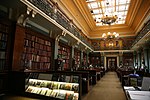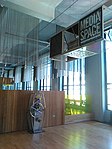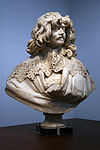Embassy of Venezuela, London
Buildings and structures in the City of WestminsterBuildings and structures in the Royal Borough of Kensington and ChelseaDiplomatic missions in LondonDiplomatic missions of VenezuelaLondon building and structure stubs ... and 4 more
South KensingtonUnited Kingdom–Venezuela relationsUse British English from May 2014Venezuela stubs

The Embassy of Venezuela in London is the diplomatic mission of Venezuela in the United Kingdom. Venezuela also maintains a building on Grafton Way, Fitzrovia housing the Consular and Cultural Secttions as well as the Defence Attaché's Office.
Excerpt from the Wikipedia article Embassy of Venezuela, London (License: CC BY-SA 3.0, Authors, Images).Embassy of Venezuela, London
Cromwell Road, London Brompton (Royal Borough of Kensington and Chelsea)
Geographical coordinates (GPS) Address External links Nearby Places Show on map
Geographical coordinates (GPS)
| Latitude | Longitude |
|---|---|
| N 51.49563 ° | E -0.17376 ° |
Address
Embassy of Venezuela
Cromwell Road 1
SW7 2JB London, Brompton (Royal Borough of Kensington and Chelsea)
England, United Kingdom
Open on Google Maps









